Maintaining heart health is crucial to overall well-being, and it’s about more than just luck.
It requires intentional efforts to manage risks like high cholesterol, blood pressure, and inflammation. Heart disease continues to be the leading cause of death worldwide, but a significant portion of heart health is within our control through lifestyle choices. Alongside a balanced diet and regular exercise, heart health supplements can be valuable tools in supporting cardiovascular health. In this guide, we’ll explore the best heart health supplements to help you achieve a healthier heart and offer practical tips on their effective use.
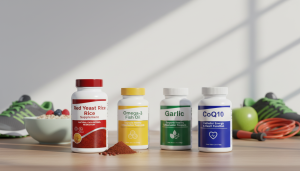
Supplements That May Help: Which Heart Health Supplements Are Worth Trying
Not all supplements are equal, and while some may support heart health, others could be less effective or even harmful. Let’s break down the top heart health supplements backed by research:
Fiber Supplements (Psyllium): A Heart Helper for Cholesterol
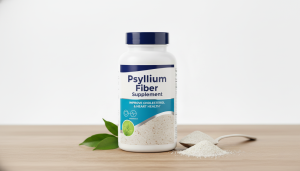
Fiber, particularly soluble fiber found in foods like oats, fruits, and vegetables, is known for lowering cholesterol levels and reducing inflammation. Psyllium, a common fiber supplement, has been shown to improve cholesterol numbers when used alongside a healthy diet. This supplement can be especially beneficial for individuals dealing with high cholesterol levels.
Quick Tip: Drink plenty of water with fiber supplements to avoid gastrointestinal discomfort and improve absorption.
Red Yeast Rice: A Natural Statin for Cholesterol Control
Red yeast rice contains a compound similar to lovastatin, a prescription medication used to lower cholesterol. This supplement can effectively reduce cholesterol and the associated risk of heart disease. However, caution is advised, as it may cause side effects like muscle pain or liver damage, similar to prescription statins.
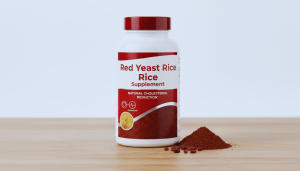
Caution: Always consult your doctor before starting red yeast rice supplements, and consider regular liver and kidney function tests.
Garlic Supplements: A Flavorful Heart Helper
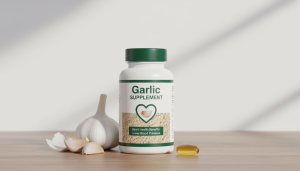
Garlic isn’t just for flavor—garlic supplements have shown promise in lowering cholesterol and improving blood pressure. While ongoing research supports its heart health benefits, garlic can interact with blood-thinning medications and increase the risk of bleeding.
Note: If you are on blood thinners, check with your healthcare provider before incorporating garlic supplements into your routine.
Magnesium: The Muscle and Heart Protector
Magnesium is vital for proper heart function, regulating blood pressure, and supporting muscle function—including the heart. Supplementing magnesium may be especially helpful for individuals with magnesium deficiency or those managing high blood pressure.
Pro Tip: If you’re considering magnesium supplements, talk to your doctor, particularly if you have kidney issues. Overuse can harm the kidneys.
CoQ10: The Energizer for Your Heart
Coenzyme Q10 (CoQ10) is a powerful antioxidant that supports cellular energy, particularly in the heart. Some studies suggest CoQ10 may help manage symptoms of heart failure. It’s also beneficial for people on statins, as it may alleviate muscle pain associated with the medication.
Caution: High doses of CoQ10 may lower blood pressure, so consult your healthcare provider if you’re on blood pressure medication.
Supplements to Avoid: Which Supplements Are Risky or Ineffective for Heart Health
While some supplements promise heart health benefits, others may be ineffective or even pose risks. Here’s what you should consider avoiding or using with caution:
Fish Oil (at High Doses)
Omega-3 fatty acids found in fish oil are known for their ability to lower triglycerides and reduce inflammation, contributing to heart health. However, high doses of fish oil can increase the risk of atrial fibrillation (irregular heartbeat) and stroke.
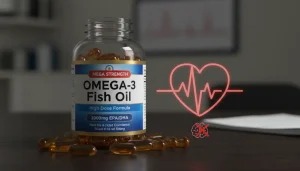
Pro Tip: If you don’t consume fish regularly, it may be better to boost omega-3 intake through food sources like fatty fish rather than relying on fish oil supplements.
Folate (Vitamin B9)
Folate is essential for reducing stroke risk, especially in individuals with elevated homocysteine levels. However, it doesn’t protect against heart attacks, and in some cases, it may cause complications for individuals with coronary artery stents.
Note: Speak with your doctor before using folate supplements, particularly if you have coronary artery issues.
Antioxidants in High Doses
Antioxidants such as vitamins C and E are beneficial in foods but haven’t been proven to prevent heart disease in high-dose supplements. Excessive antioxidant intake may interfere with natural recovery processes or even impact cancer treatments.
Quick Fact: Instead of high-dose supplements, consider getting antioxidants from natural food sources like berries, leafy greens, and nuts for heart protection.
Vitamin D
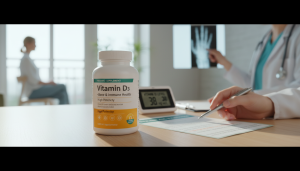
Vitamin D is important for bone health, but there’s insufficient evidence to support its role in preventing heart disease. If you’re not deficient, vitamin D supplementation may not be necessary. It’s a good idea to have your levels checked by your healthcare provider.
Niacin (Vitamin B3)
Niacin is sometimes used to improve cholesterol levels, but it can cause side effects such as liver damage, increased blood sugar, and flushing when taken in high doses. Avoid high-dose niacin supplements unless prescribed by your doctor.
How Supplements Fit into a Healthy Lifestyle: Tips for Using Supplements Alongside Exercise and Good Nutrition
Supplements should complement, not replace, a healthy lifestyle. Here’s how you can integrate heart health supplements effectively into your routine:
Combine Supplements with a Heart-Healthy Diet
A nutrient-rich diet plays a significant role in heart health. Prioritize healthy fats (like olive oil and nuts), whole grains, lean proteins, and plenty of fruits and vegetables to maximize the benefits of supplements.
Exercise Regularly

Physical activity is key to maintaining a healthy heart. Aim for at least 150 minutes of moderate exercise each week. Exercise enhances circulation, reduces stress, and helps maintain a healthy weight, further supporting the effectiveness of supplements.
Stay Hydrated
Water is essential for supplement absorption, particularly with fiber supplements. Adequate hydration also promotes healthy circulation and kidney function.
Don’t Overdo It
Excessive supplement use can interfere with nutrient absorption and lead to toxicity. Stick to recommended dosages and monitor your body’s response.
Potential Risks of Supplements: The Importance of Checking in with a Healthcare Professional
Before adding any supplements to your routine, it’s crucial to consult your healthcare provider. Supplements can interact with prescribed medications, and some may cause harmful side effects or toxicity.

Interactions with Medications
Some supplements, such as garlic or red yeast rice, may interact with medications like blood thinners or cholesterol-lowering drugs. Always check with your doctor before adding any supplements to your regimen.
Incorrect Labeling and Toxicity
Supplements aren’t as strictly regulated as medications, and some may have inaccurate dosages or ingredients. This could lead to overdoses or ineffective doses, especially with natural supplements like red yeast rice or CoQ10.
False Sense of Security
Supplements can support heart health but shouldn’t replace a healthy diet, exercise, and lifestyle changes. Don’t rely solely on supplements—focus on a balanced lifestyle for long-term heart health.
Conclusion: How to Truly Support Your Heart Health
Supplements can play a supportive role in your heart health, but they’re not a substitute for a healthy lifestyle. Prioritize a well-rounded approach with proper nutrition, regular exercise, and stress management.
Key Tips to Support Your Heart Health:
- Eat a balanced diet rich in fruits, vegetables, lean proteins, and healthy fats.
- Exercise regularly (at least 150 minutes of moderate activity per week).
- Manage stress and avoid smoking.
- Stay hydrated and use supplements wisely to support your heart health.
FAQs
Are supplements better than medications for heart health?
Supplements can complement heart health but should not replace prescribed medications. Always consult with your healthcare provider.
How can I naturally lower my cholesterol?
Increase fiber intake, eat fatty fish, reduce processed foods, and exercise regularly to help lower cholesterol levels.
Can supplements prevent heart disease entirely?
No. Supplements support heart health but should be part of a broader lifestyle that includes a healthy diet, exercise, and regular checkups.
Is fish oil safe for everyone?
Fish oil may be beneficial in moderate doses but can raise the risk of bleeding at high doses. Consult your doctor before starting fish oil supplements.
How do I know which heart health supplements are right for me?
Your healthcare provider can offer personalized recommendations based on your health needs and medications.
